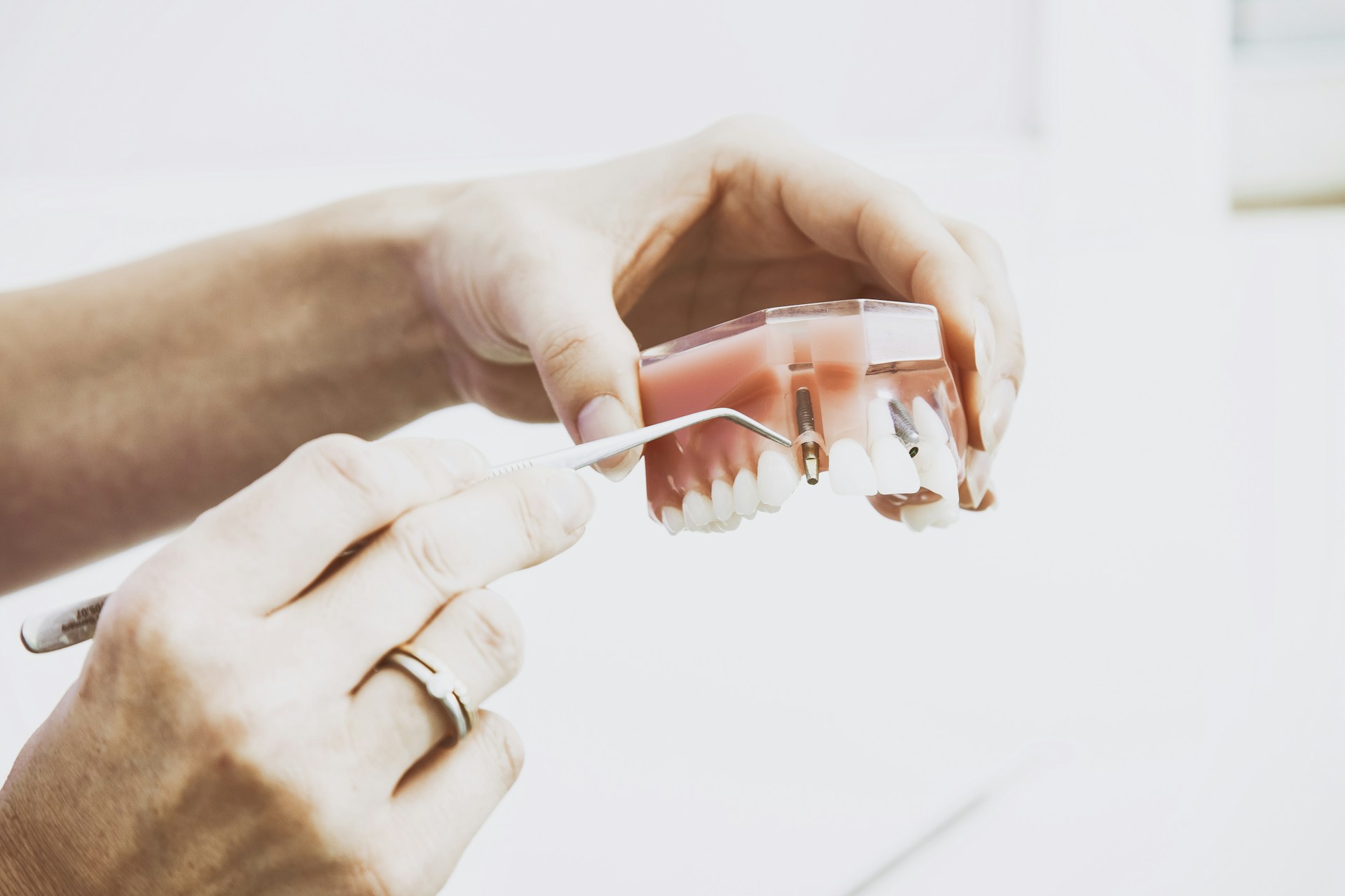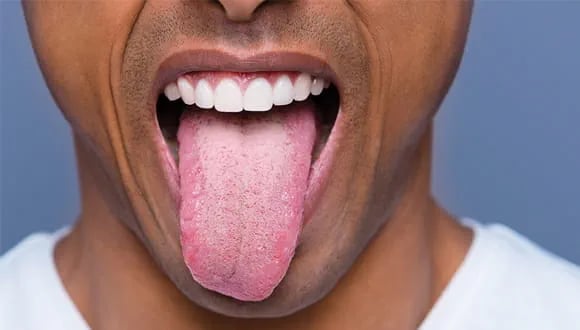SMILE- It costs nothing !!!
CAUSES AND TREATMENTS FOR TONGUE BLEEDING
Discover the causes and treatments for tongue bleeding after brushing. Understand potential health concerns and learn effective oral hygiene practices to prevent recurrence. Prioritize your health today with our expert insights and tips.
10/1/2024
Why is My Tongue Bleeding After Brushing?
Have you ever noticed a bit of blood on your toothbrush or in the sink after brushing and wondered why your tongue is bleeding?
While bleeding gums are a common concern, bleeding from the tongue is less frequent but equally important to address.
Causes of Tongue Bleeding After Brushing
Aggressive Brushing
One of the most common causes of tongue bleeding after brushing is brushing too aggressively.
Many people mistakenly believe that the harder they brush, the cleaner their mouth will be, but this can lead to unintended damage.
The tongue is a sensitive organ with a thin layer of mucosal tissue, making it more prone to injury from harsh scrubbing.
Using a toothbrush with hard bristles, applying too much pressure, or brushing in a vigorous manner can all result in small cuts or abrasions on the surface of the tongue.
These tiny injuries can cause the blood vessels close to the surface to break, leading to bleeding.
While the bleeding may stop quickly, repeatedly brushing too hard can irritate the same spots, leading to chronic sensitivity and recurring issues.
Switching to a softer toothbrush and adopting a gentler brushing technique can help prevent this problem, ensuring that your tongue stays healthy and free from injury.
Related : What your tongue says about your oral health
Injury or Trauma
Another potential cause of tongue bleeding is injury or trauma, which can occur before or during brushing.
You may have accidentally bitten your tongue while eating or talking, leaving a small wound that goes unnoticed until brushing aggravates it.
Sharp or hard foods, such as chips or certain nuts, can also cause small cuts on the tongue.
When you brush over these injuries, especially with stiff bristles or aggressive motions, it can reopen the wound, causing it to bleed again.
Dental tools, such as floss or interdental brushes, might accidentally scrape the tongue during your oral care routine, further increasing the risk of bleeding.
Even something as simple as biting into something too hot can burn the surface of the tongue, leaving it more vulnerable to bleeding when irritated by brushing.
To minimize the chance of injury-related bleeding, it’s important to be cautious while eating and brushing, and to allow any existing injuries to heal fully before returning to your regular routine.
Oral Infections
Infections in the mouth can make the tongue more prone to bleeding, especially when brushing.
Oral thrush, a yeast infection caused by the Candida fungus, can develop on the tongue and other areas of the mouth, leading to white patches, redness, and irritation.
Brushing over these sensitive patches can cause them to bleed.
Similarly, viral infections like herpes simplex can lead to painful sores or blisters on the tongue, which may bleed when disturbed.
Bacterial infections in the mouth, if left untreated, can also affect the tissues on and around the tongue, increasing the likelihood of bleeding when brushing.
If you suspect that an infection is the cause of your tongue bleeding, it’s essential to see a healthcare provider for appropriate treatment, as infections can worsen without proper care.
Related : Oral Thrush in adults
Vitamin Deficiency
A deficiency in certain vitamins, particularly vitamin C and vitamin K, can make your tongue and other oral tissues more susceptible to bleeding.
Vitamin C is crucial for the maintenance of healthy tissues, including those in the mouth, as it helps with the production of collagen, a protein that supports the structure of the skin, gums, and blood vessels.
Without adequate vitamin C, the tissues in the mouth can weaken, leading to easy bleeding from minor trauma such as brushing.
Vitamin K plays a vital role in blood clotting, and a deficiency in this nutrient can result in prolonged bleeding, even from small injuries like those caused by brushing.
Other deficiencies, such as low levels of iron or B vitamins, may also lead to increased oral sensitivity, causing the tongue and gums to bleed more easily.
If you notice recurrent bleeding and suspect that your diet might be lacking in essential nutrients, it’s a good idea to consult with a healthcare provider or nutritionist to ensure you are getting enough of these important vitamins and minerals.
Underlying Health Conditions
In rare cases, persistent bleeding from the tongue can be a sign of an underlying health condition, such as anemia, blood clotting disorders, or even more serious diseases like leukemia.
If your tongue continues to bleed without an obvious cause, or if you experience other symptoms such as fatigue, unexplained bruising, or frequent infections, it’s important to seek medical attention.
While these conditions are less common, addressing them early can lead to more effective treatment and prevent further complications.
Tongue Cancer
In rare cases, tongue bleeding after brushing could be a symptom of tongue cancer. While this is not the most common cause, it's important to consider it, especially if the bleeding is persistent or accompanied by other concerning signs.
Tongue cancer, a type of oral cancer, typically begins as a sore or lesion on the tongue that doesn't heal and can sometimes bleed.
In its early stages, tongue cancer may cause small red or white patches, lumps, or rough spots on the tongue, which can be easily aggravated by brushing, leading to bleeding.
Other symptoms of tongue cancer may include persistent pain, difficulty swallowing, numbness, or a feeling that something is stuck in the throat.
If you notice recurring bleeding from the tongue along with any of these symptoms, it's crucial to consult a healthcare provider for a thorough evaluation.
Related : How to brush your tongue
When to Worry
While occasional bleeding might not be serious, there are some red flags to watch out for:
Frequent or heavy bleeding that doesn’t stop easily.
Unexplained sores or lesions on the tongue.
Pain or swelling in the tongue or surrounding areas.
Changes in the color or texture of the tongue.
Difficulty eating, speaking, or swallowing due to tongue irritation.
These symptoms may point to an infection or a more serious health issue, so it’s crucial to get a medical evaluation.
Home remedies for bleeding tongue
If you experience tongue bleeding after brushing or due to minor injuries, there are several home remedies that can help soothe the area and stop the bleeding.
These remedies are generally safe for mild cases, but if the bleeding persists or worsens, it's important to consult a healthcare professional.
Here are some effective home remedies to stop tongue bleeding:
1. Salt Water Rinse
A salt water rinse is one of the simplest and most effective remedies for minor tongue bleeding. Salt has natural antiseptic properties that help reduce inflammation and promote healing.
It also helps clean the wound and prevent infection.
2. Cold Compress
Cold compresses can help constrict blood vessels, reducing bleeding and providing relief from pain or swelling. Applying ice or a cold object to the affected area can quickly stop bleeding and soothe the tongue.
3. Honey
Honey has natural antibacterial and healing properties, making it an excellent remedy for minor tongue injuries that bleed. It can reduce inflammation and promote faster healing.
4.Avoid Irritating Foods
Spicy, acidic, or sharp foods can further irritate a bleeding tongue. Stick to a soft, non-irritating diet until the bleeding stops to prevent infection.
5.Use a Soft-Bristled Toothbrush
Switch to a soft-bristled toothbrush, as this will be gentler on your tongue and gums. Avoid brushing too hard and take extra care around sensitive areas.
6.Improve Your Brushing Technique
Focus on brushing your teeth and not aggressively scrubbing the tongue. When you clean your tongue, use a tongue scraper, which is designed to gently remove bacteria without causing damage.
Tongue bleeding after brushing can happen for various reasons, ranging from something as simple as brushing too hard to more complex health concerns.
In most cases, adjusting your brushing technique and being mindful of your oral health should help resolve the issue.
However, if the problem persists, don't hesitate to consult a professional. Your tongue is an important part of your overall oral health, and taking care of it is essential for maintaining a healthy smile!

Contact Smiles
drdeepi15@gmail.com
Dr. Deepika B.D.S
© 2025 SmileWide Dental. All Rights Reserved.
Have doubts ..?


